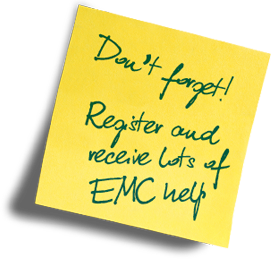Keith Armstrong receives IEEE award
27 Sep 2018
~ commitment to practical EMC education recognised by international engineering institution ~
Global electromagnetic compatibility (EMC) specialist Keith Armstrong was the first person to be presented with the IEEE’s new Excellence in Continuing EMC Education Award, at the 2018 joint IEEE EMC society and Asia-Pacific EMC (APEMC) symposium.
‘Continuing Education’ means professional education that engineers undertake after their academic education, often called ‘continuing professional development’.
The awards ceremony followed a series of successful EMC training courses by Keith in Australia. These are latest in a series of such courses on good, cost-effective EMC, signal integrity (SI) and power integrity (PI) engineering that Keith has delivered worldwide for more than 23 years.
During this period Keith also wrote many articles and guides and presented many conference papers on these topics, including testing techniques and risk managing electromagnetic interference (EMI), which used to be called ‘EMC for Functional Safety’.
It was Keith’s commitment to continuing EMC education for practising engineers that prompted the launch of online resource EMC Standards in 2016.
“A strong understanding and knowledge of EMI and EMC is imperative in modern engineering,” explains Keith. “Designers are always using die-shrunk integrated circuits (ICs) and power switching devices and adding new features to products in a never-ending quest to maintain or grow market share. This generally results in worse SI, PI, emissions and immunity: increasing difficulties in complying with functional specifications and EMC standards; poorer customer experiences, and increased warranty costs.”
“Achieving EMC is often left to a small group of EMC experts, after the functional design is complete, sometimes called “throwing it over the wall to the EMC department”. But this has become extremely inefficient because almost every aspect of a modern electronic product has an impact on EMC. To get to market quickly with a successful and profitable product now requires all designers to use good EM engineering. They don’t need to become EMC experts, or know how to test to standards, but they do need to know enough to ensure that their first prototypes are close-enough to their final products to only require minor modifications.”
“Unfortunately, practical EM engineering is generally not taught as part of academic engineering courses, at any level, so I have always focussed on helping design engineers and their managers understand – in practical terms – what is required at each stage of the product cycle to avoid real-world problems and reduce financial risks.”
“I am very honoured to have been the first person to be presented with this new IEEE award, and will continue to deliver practical education on EMC, SI and PI to engineers worldwide. I hope to deliver this increasingly via my continually-updated training course material on the EMC Standards site.”
More information on Keith’s practical educational material for EMC, SI and PI design, including EMC compliance.
Get more from EMC Standards
EMC Standards is a world-leading resource for all things EMC and EMI related. Our website is packed full of both free and paid-for content, including:
- Online quiz
- Webinars
- Training quiz
- And much more!

Electromagnetic Engineering (EMgineering) is the basis for proven good design practices for signal integrity (SI), power integrity (PI), and the control of EMI emissions and immunity (EMC).
Our aim is to help people learn how to more quickly and cost-effectively design and manufacture electronic equipment (products, systems, installations, etc.) to meet functional (i.e. SI/PI) specifications and conform to EMC standards, directives and other requirements.
Such equipment should benefit from reduced warranty costs and financial risks, whilst improving uptime, competitiveness and profitability.
We also cover basic good electrical safety engineering; and the Risk Management of Electromagnetic Disturbances / EMI, whether for Functional Safety or other types of risk.
Join EMC standards TODAY!
